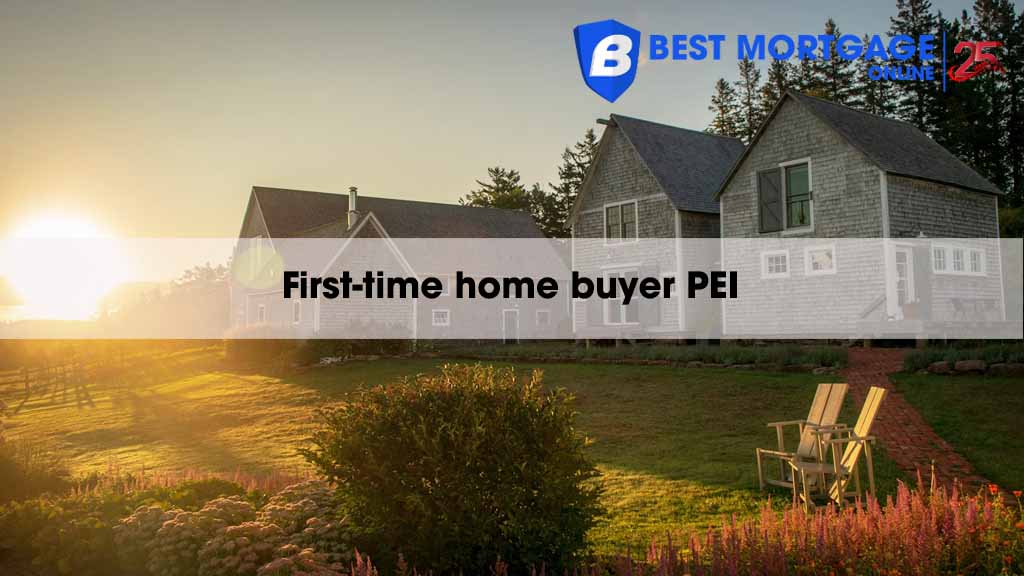Ontario offers multiple programs explicitly designed to help first-time home buyer get their foot in the door. From tax rebates that can save you thousands to creative financing options that reduce your down payment burden, there are real ways to make homeownership happen.
This guide walks you through everything you need to know about who qualifies for special programs, what financial help is available, and practical strategies to navigate this challenging market.
Who is qualified to be a first-time home buyer in Ontario?
You are considered a first-time home buyer Ontario if you and your spouse or common-law partner have never owned a home anywhere in the world. To officially qualify for Ontario’s programs, you must also:
- Plan to live in the home as your main residence within nine months of buying it
- Be at least 18 years old
- Hold Canadian citizenship or permanent resident status
However, there are 3 important exceptions:
- Recently divorced or separated individuals may qualify even if they previously owned property during their marriage
- Those who received a home as a gift or inheritance (rather than purchasing it) might still be eligible
- People who have not owned property in the past four years can access certain federal programs
What is the first-time home buyer incentive in Ontario?
Ontario first-time home buyers can access many incentives, including up to $8,475 in land transfer tax rebates (provincial and Toronto-specific), municipal down payment assistance programs, and federal tools like the RRSP Home Buyers’ Plan, First Home Savings Account, and tax credits.
They help reduce upfront costs and make homeownership more accessible through tax breaks, grants, and interest-free loans.
Understanding the first time home buyer incentive in Ontario requires distinguishing past programs from current opportunities.
Ontario Land Transfer Tax Rebates
Land transfer tax is a provincial tax charged whenever property changes hands. The tax rates are progressive, meaning they increase with property value. This program directly reduces one of the largest closing costs you will face when purchasing a home.
The first-time home buyer tax rebate in Ontario works by refunding the tax on homes valued up to $368,000. If your home costs exactly $368,000 or less, you pay no provincial land transfer tax at all. For more expensive properties, you receive the maximum $4,000 rebate and pay only the tax on the amount above $368,000.
Property tax credits help seniors and low-income homeowners manage ongoing costs. The Ontario Electricity Support Program reduces hydro bills for qualifying households. Various energy efficiency rebates help new owners upgrade insulation, windows, and heating systems, reducing both environmental impact and monthly bills.
For buyers with disabilities, Ontario provides grants for accessibility modifications. These help make homes wheelchair accessible or safer for those with mobility challenges. While not exclusive to first-time buyers, they often prove valuable for young families planning for the future.
Toronto’s municipal LTT rebate
Toronto charges its own municipal land transfer tax on top of the provincial tax. Thus, it offers its own first-time purchaser rebate worth up to $4,475.
The Toronto first-time home buyer rebate covers the full municipal tax on homes priced at $400,000 or less. For more expensive properties, you receive the maximum rebate amount and pay tax only on the excess. When combined with the provincial rebate, Toronto first-time buyers can save up to $8,475 total on land transfer taxes.
For information about the rebates of other provinces, refer to LTT rebates for first-time homebuyers in Canada.
Local programs for Ontario home buyers
Recognizing that housing challenges vary across Ontario, many municipalities created their own assistance programs. Remember that they require current renter status in the municipality, household income below specified limits, assets below maximum thresholds, and commitment to long-term occupancy (usually 20 years). If you can obtain them, there are 7 programs to choose from:
| Municipality | Loan Type & Amount | Requirements | Forgiveness/Repayment |
|---|---|---|---|
| Chatham-Kent | 10% of the purchase price, up to $25,000 | Income up to $95,000 Home up to $403,000 | Repay principal only; no interest |
| Region of Waterloo (Kitchener, Cambridge) | 5% of the first $500,000 price Plus 10% for any amount between $500,000 and $600,000 | Income up to $109,0000 Home up to $600,000 12 months regional residency | Forgiven after 20 years; repay if sold earlier |
| Simcoe County | 10% of the purchase price up to $50,000 | Income up to $121,500 Home up to $712,300 | Forgiven after 20 years |
| Kingston & Frontenac County | Forgivable loan up to $45,000 | Income: Singles up to $95,000; couples up to $130,000. Home up to $500,000 | Forgiven after 20 years |
| Brantford/Brant County | 5% forgivable loan | Income up to $90,600 Home up to $400,000; assets up to $30,000 | Forgiven after 20 years |
| Dufferin County | 10% interest-free loan | Income up to $109,000 ($132,000 multi-earner) Home up to $609,118; assets up to $30,000 | Repay principal plus % appreciation if sold within 20 years |
| District of Muskoka | 10% loan up to $70,000 | Income up to $112,400 Home up to $726,600; assets up to $50,000 (individual), $75,000 (family) | Repay on sale |
Federal programs for first-time home buyers in Ontario
Federal first-time home buyer programs require that you have not owned a home you lived in during the past 4 years, maintain Canadian residency, and intend to occupy the home as your principal residence. If you have those qualifications, there are 4 programs for you to consider:
The Home Buyers’ Plan
Home Buyers’ Plan (HBP) allows you to borrow from your own retirement savings without tax penalties. You can withdraw up to $60,000 from your Registered Retirement Savings Plan (RRSP) to use toward your home purchase. For couples buying together, that’s potentially $120,000 in down payment funds.
The HBP works like an interest-free loan from yourself. You have 15 years to repay the amount back into your RRSP, with payments starting in the second year after withdrawal. Miss a payment, and that amount gets added to your taxable income for the year. The program recognizes that homeownership itself builds wealth, making it reasonable to redirect retirement savings toward a home temporarily.
First Home Savings Account (FHSA)
First Home Savings Account was recently launched as a hybrid savings vehicle that combines the best features of RRSPs and Tax-Free Savings Accounts. You can contribute up to $8,000 annually, with a lifetime limit of $40,000. Contributions reduce your taxable income like RRSP deposits, but qualified withdrawals for home purchases come out tax-free.
It benefits younger buyers who have time to save. Starting at age 18, you could theoretically save the full $40,000 by age 23, then use these funds plus growth completely tax-free for your home purchase. Unlike the HBP, FHSA withdrawals do not require repayment.
First-Time Home Buyers’ Tax Credit
This program offers a modest but helpful $1,500 federal tax credit in the year of your purchase. While less impactful than other programs, it helps offset closing costs, such as legal fees and inspections. You claim it when filing taxes for the year you bought your home.
GST/HST New Housing Rebates
These rebates can return thousands of dollars of the sales tax paid on new builds. Federal rebates reach up to $6,300, while Ontario provides additional rebates up to $24,000, depending on the purchase price. Builders sometimes assign these rebates to reduce your purchase price, effectively lowering the amount you need to finance.
The Original First-Time Home Buyer Incentive (Discontinued)
The original First-Time Home Buyer Incentive offered by CMHC was discontinued in March 2024. This program previously provided shared equity mortgages where the government contributed 5-10% toward your down payment.

What to consider as a first-time home buyer in Ontario
There are 3 things to prepare for whenever diving into the first-time home buyer incentive in Ontario:
Understanding your local market
Not all real estate markets in Ontario are created equal. So, research neighbourhoods based on proximity to work, public transit, amenities, and schools, if applicable. Partnering with a real estate agent can help you navigate local trends, assess long-term property value, and negotiate effectively.
Creating a realistic budget
Your budget needs to account for more than just the purchase price:
- Down payment: Minimum 5% for homes under $500,000
- Monthly costs: Mortgage payments, property taxes, utilities, insurance
- One-time closing costs: Legal fees, inspections, moving expenses
- Emergency fund: Repairs and unexpected expenses after moving in
Building your financial foundation
Getting pre-approved for a mortgage provides a clearer understanding of what you can afford and strengthens your offer in a competitive market. It also helps you avoid falling in love with a home outside your financial reach. Lenders will analyze your income, credit score, employment history, and debt levels to calculate your mortgage limit.
Discover first-time home buyer guides for other provinces in Canada:
- First-Time Home Buyer BC
- First-Time Home Buyer Alberta
- First-Time Home Buyer Saskatchewan
- First-Time Home Buyer PEI
- First-Time Home Buyer Nova Scotia
- First-Time Home Buyer Manitoba
- First-Time Home Buyer Newfoundland and Labrador
- First-Time Home Buyer Quebec
- First-Time Home Buyer New Brunswick
- First-Time Home Buyer Nunavut
FAQs about first-time home buyer Ontario
Can I use both the FHSA and RRSP Home Buyers' Plan together?
Yes. You can combine both programs to maximize your first-time home buyer Ontario down payment. This means accessing up to $60,000 from your RRSP through the HBP plus up to $40,000 from your FHSA, giving you potentially $100,000 toward your home purchase.
How do I know if a local program is available?
Check with your municipality or region. Many have websites with details, such as those for Kingston, Simcoe, or Waterloo.
Are there incentives for rental properties?
Most programs require the home to be your principal residence, but “house hacking” (living in one unit and renting others) is allowed under some programs, like the HBP.
What if I buy a home with a non-first-time buyer?
If you buy with someone who is not a first-time buyer (e.g., a parent), you may still claim a proportional LTT rebate. For a 50/50 ownership, you would get 50% of the $4,000 rebate ($2,000).
The bottom line
Becoming a first-time home buyer in Ontario is no easy feat, but it’s not impossible. By taking advantage of tax credits, rebates, and savings programs, and working with mortgage brokers and real estate professionals, you can reduce costs and improve your chances of success. While affordability remains a hurdle, strategic planning and program stacking can help you get on the property ladder.
For updated incentives and the best mortgage rates, consult reputable platforms and local housing offices regularly.




